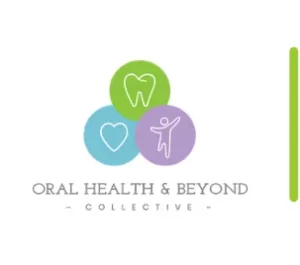Adult Tongue Tie: What You Need to Know
While many associate tongue tie with infants, this condition—also known as ankyloglossia—doesn’t just vanish after childhood. It’s essential to recognize that adults can also experience the challenges of tongue tie, from speaking issues to dental concerns.
Understanding Adult Tongue Tie
Tongue tie is a condition where a tight band of tissue connects the tongue’s underside to the mouth’s floor. If it wasn’t identified or treated during infancy or perhaps wasn’t seen as severe, it could still affect adults. As we age and our oral demands grow, the restrictions from tongue tie can become more evident.
Symptoms to Watch For
Tongue tie can present various signs in adults. Some may have been noticeable from younger years, while others might emerge as oral demands change:
- Speech Issues: Certain sounds, like “L”, “R”, “T”, and “D”, can be hard to pronounce, impacting social interactions and self-esteem.
- Dental Health Concerns: A restricted tongue might not clean the mouth effectively, leading to dental issues like cavities and gum disease.
- Challenges with Eating & Swallowing: Some adults may find it hard to move food in their mouths or swallow specific textures.
- Jaw or TMJ Concerns: The tongue’s limited movement might strain the jaw muscles, potentially causing TMJ issues or other facial pains.
- Sleep Issues: Tongue tie can contribute to snoring or even sleep apnea because of the tongue’s positioning.
- Jaw Development Concerns: The tongue’s restricted movement can cause the jaw to stay too narrow or too small, causing dental issues when permanent teeth don’t have enough room.
- Breathing Issues: Alongside teeth not having room, other parts of the craniofacial area can anatomically change. This can lead to mouth breathing, snoring, and loud breathing.
- Activity Limitations: Activities needing tongue flexibility, like playing certain instruments or kissing, might be affected.
- Appearance Concerns: Some might feel self-conscious if their tied tongue has a noticeable heart-shaped or visible frenulum.
Potential Risks
Untreated adult tongue tie can bring about risks:
- Dental Challenges: The inability to maintain proper oral hygiene could lead to severe dental problems.
- Speech Barriers: Clear articulation problems can impact work opportunities or public speaking events.
- Digestive Concerns: Inefficient chewing can lead to digestive troubles like indigestion.
- Ongoing Pain: Chronic pain might arise from the constant strain on the jaw and surrounding muscles.
- Emotional Impact: The struggles with tongue tie can affect mental well-being, causing feelings of inadequacy or even social withdrawal.
Tongue tie isn’t just a childhood issue; it’s a lifelong condition that can bring multiple challenges for adults. Identifying the signs is the first step to seeking appropriate care. Treatment may involve surgery, speech therapy, or both. If you believe you or someone you know might have tongue tie, consult with healthcare experts—like a dentist, orthodontist, or otolaryngologist—to discuss solutions and enhance your quality of life.







